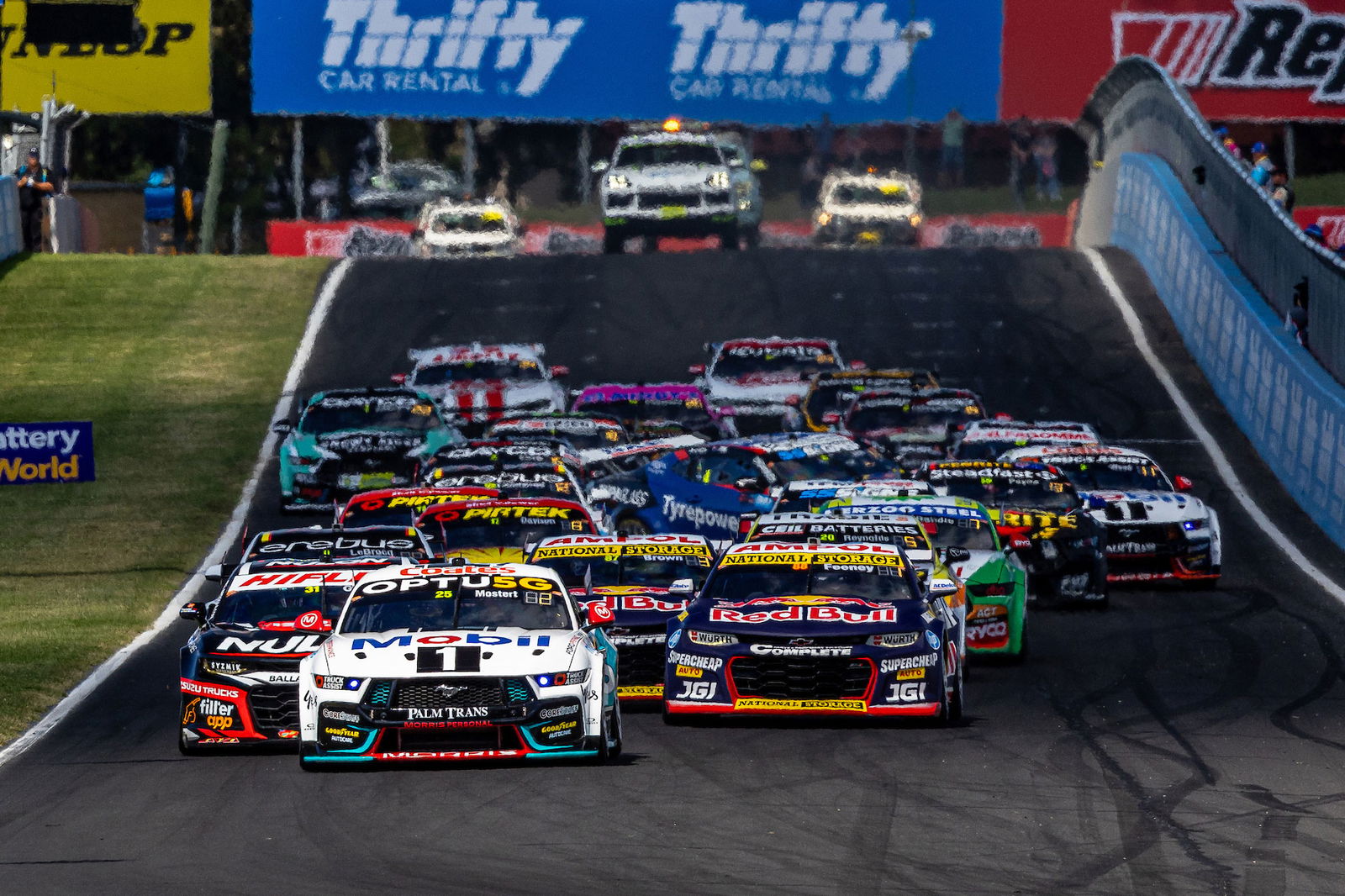

The category concluded the second of two much-hyped transient dyno tests with the two engines in the United States prior to the Sandown 500.
Supercars did not enact any changes for the Melbourne enduro, opting first for further local dyno and track testing as part of a comprehensive analysis of results.
That frustrated some Chevrolet teams as it’s understood the AVL testing showed the Ford had more peak power than its rival.
It’s a perplexing result given that the Camaros have this year scored their biggest wins on the tracks with the longest straights, such as Bathurst, Hidden Valley and Sandown.
Speedcafe has heard various suggestions as to why that could be, ranging from characteristics of the Ford engine’s torque curve to renewed questions over the Mustang’s drag.
Supercars has this week been testing a range of Ford and Chevrolet engines on its own dyno in Brisbane for comparison with the AVL results ahead of track testing next week.
All engines are dyno tested by Supercars and must perform within 0.8 percent of their performance benchmark before being sealed and given to teams.
Where the two engines that were tested in the USA fit within that tolerance may also explain the differences recorded at AVL, with the Chev believed to have been at the lower end of its performance window.
The results of the Australian dyno testing will likely impact exactly what Supercars aims to achieve with the track running next week and whether any performance-related tweaks need to be made.
Ford’s crankshaft catastrophe at Sandown has further complicated matters for Supercars in its quest for parity and in particular next week’s testing.
A Triple Eight Camaro is expected to run at Queensland Raceway on Monday to lock in minor engine mapping changes that were already tested by the team prior to Sandown.
The Blanchard Racing Team’s spare Mustang has been dispatched to Queensland for testing, although whether an engine with the new Ford crankshaft is ready for Monday remains to be seen.
Ford’s engine supplier Motorsport Powertrains is currently flying in the first examples of the replacement crankshafts, taken from its GT3 program, which are set to arrive imminently.
Supercars’ general manager of motorsport, Tim Edwards, confirmed via the category’s website that track testing will take place next week, albeit with no dates mentioned.
“Engine testing of the Ford with an updated crankshaft and the Chevrolet with updates that followed testing at the AVL facility in Detroit will take place on track next week,” Edwards said.
“Any changes to engines will be confirmed prior to the Repco Bathurst 1000.”
Ford’s move to the GT3 crankshaft is purely reliability focused, with a combination of early 2024 developments believed to have contributed to the failures with the previous cranks at Sandown.
Reliability appears to be a greater concern for the Ford camp than parity heading to Bathurst, with uncertainty surrounding how many of the new crankshafts will be available.




















Discussion about this post